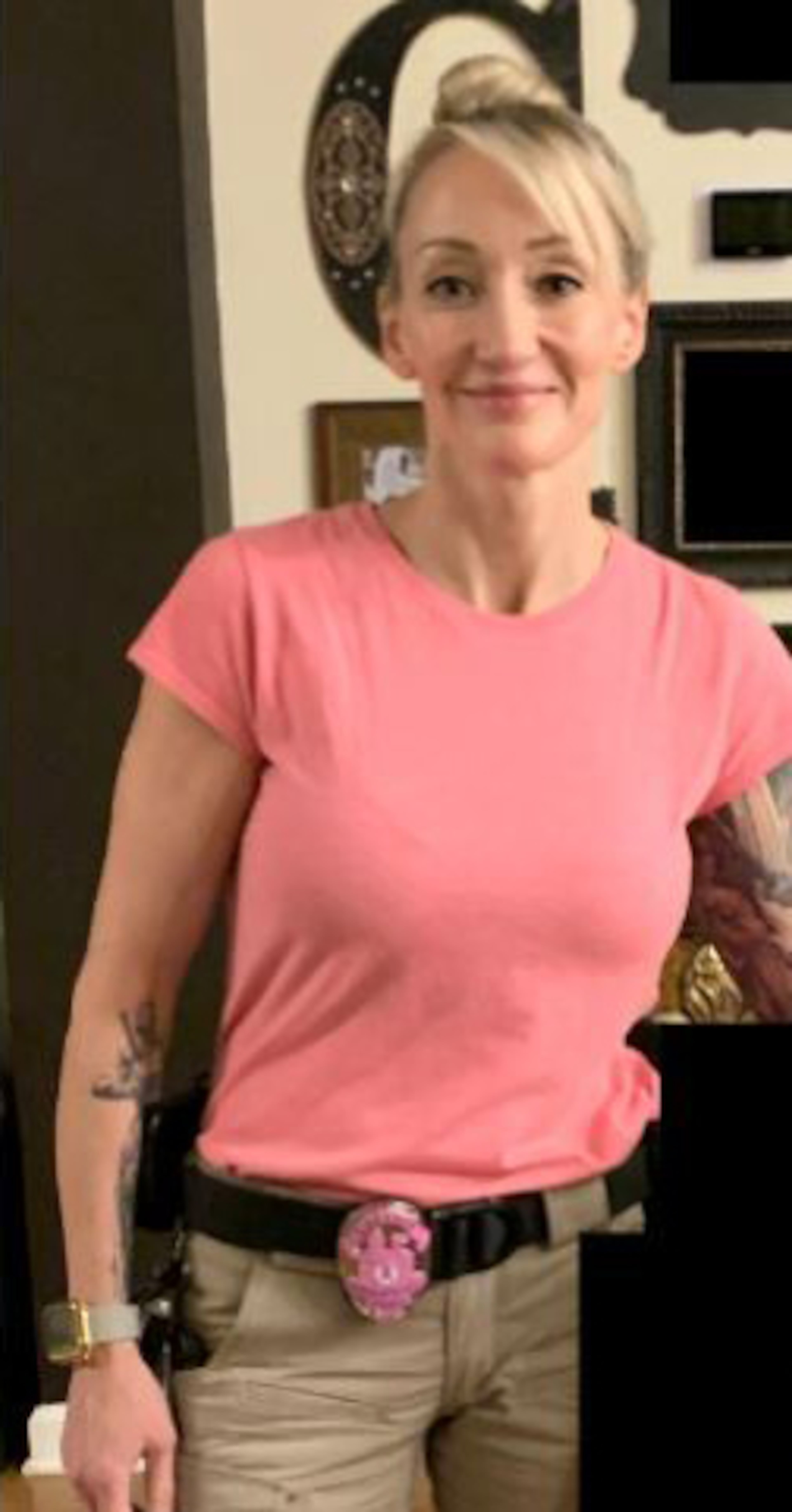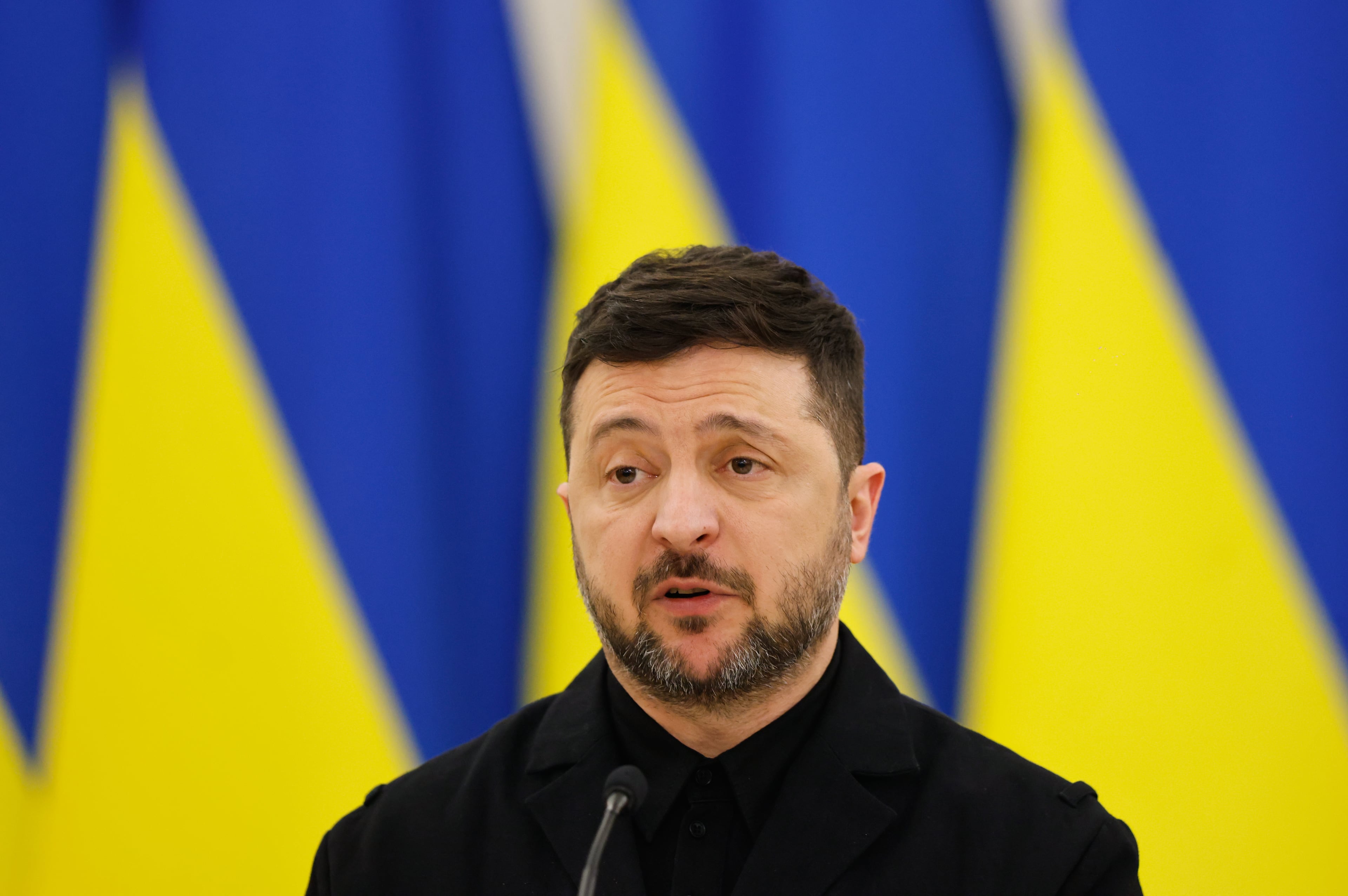Employees faced threats not to speak out on sex harassment scandal

Lawrenceville’s city manager Chuck Warbington didn’t just tell a sexual harassment victim to keep quiet about what she endured working for the city’s police department. He warned her and others if they talked publicly, they would face repercussions.
He sent the threat via email on Jan. 27 to several police and city officials, including Capt. Tawnya Gilovanni, who three months earlier had reported concerns about treatment she and other women experienced at the agency.
“I will make it clear again,” Warbington wrote in the email. “No city employee shall discuss this matter directly or indirectly (off the record or on the record) with media. Disciplinary action will be taken if this occurs.”
The email was part of a broader effort by Warbington to prevent employees from speaking publicly about an internal investigation into sexual harassment at the agency, The Atlanta Journal-Constitution has found. The evening before Warbington’s email, the AJC on Jan. 26 broke the story of the scandal.
Warbington’s actions may have violated the law, according to legal experts. The captain and others within the department had a Constitutional right to speak out about the problems cropping up within city government. Under precedent set by the U.S. Supreme Court, governments can’t ban employees from speaking out as individuals about matters that are of public concern.
Over the years, many government agencies have nevertheless adopted policies that silence public workers, according to a recent study by the Society of Professional Journalists. Emails from Warbington, obtained by The Atlanta Journal-Constitution, offer examples of such a policy in force and also reveal how the city manager may have exposed taxpayers to litigation by quashing employees’ First Amendment rights, legal experts told the AJC.
Lawrenceville’s former police chief, ousted amid the scandal, has already filed a federal lawsuit alleging Warbington forced him to retire after accusing him of violating his directive not to speak to the media. Gilovanni, who still works for the city, has filed a U.S. Equal Employment Opportunity Commission complaint and hired an attorney, who is preparing to file a lawsuit on her behalf.
“She has the clearest claim of all,” said Kira Fonteneau, an employment attorney who leads the Alabama practice group for the law firm Barrett & Farahany. “It’s her civil rights. It’s her right to speak about these things that is most clearly established in the law.”

In early March, just days after the AJC published an article detailing Gilovanni’s EEOC complaint and how Warbington was muzzling her and other employees, the city manager changed his position on the speech ban he had imposed weeks earlier.
He sent a “clarification” memo via email to police personnel on March 2 saying they had the right to speak as private citizens, although he tried to explain his earlier directive.
“I believed that it was important for the City to speak with one voice,” he wrote. “It appears my request has been misinterpreted so I wanted to clarify my statement regarding inquiries from the media.”
But the damage may have already been done. Clare Norins, director of the University of Georgia law school’s First Amendment Clinic, said employees are likely to believe Warbington meant what he said in the first message, and is now backpedaling just to cover himself legally.
“The chilling has already had its effect, and it’s really hard to walk that back,” she said.
Warbington declined an interview request for this story, requesting questions in writing. He responded with a one-page statement on Wednesday that did not directly address several of the AJC’s questions, including his contradicting messages to police employees.
“The report was completed,” Warbington said of the investigative report by an outside law firm. “I evaluated the report and took appropriate disciplinary actions, recommendations were made, and are being implemented.”
But in the lawsuit he filed on March 24, former Chief Wallis claims that in the wake of the investigation, Warbington took actions to “control the narrative” to deflect criticism about his own wrongdoings.
“City Manager Warbington wanted only his version of the story disseminated, no matter what the truth really was,” the lawsuit claimed.
Ban on speaking
The internal investigation was launched in October after Capt. Gilovanni — the first and only woman on the police department’s command staff — came forward and said she was being harassed within the department.
The AJC started reporting on the investigation in early January. On the evening of Jan. 26, the newspaper was preparing a story that it would publish that evening on its website. A reporter called Wallis and the chief said he had been ordered by Warbington to direct questions his way.
However, the chief said he had a spotless career and he had hired an attorney. During the call, his wife, Avie Terris, got on the phone and defended her husband. She said he was being used as a “sacrificial lamb.” The story quoted the chief and his wife.
The next day, the city released the results of its internal investigation by Elarbee, Thompson, Sapp & Wilson law firm. The report, which was dated Dec. 28, outlined a toxic culture for women in the male-dominated police department. It specifically cited Chief Wallis and a male captain, Ryan Morgan, for sexually harassing Gilovanni. Both men have denied they harassed anyone.
The city announced in a news release at noon that day that Wallis had been suspended for 10 days without pay. Warbington had sent the chief an email earlier in the day. He admonished him for his public comments and reminded him of the directive not to talk to reporters.

“This includes comments reportedly from your wife as well,” the email said. “This will be discussed with you after your return from your suspension. I again will direct you not to discuss indirectly or directly anything associated with this situation.”
Wallis now alleges that Warbington forced him out over his public comments where he tried to defend himself. In a Feb. 1 meeting, the city manager gave him 10 minutes to decide between retirement or termination, according to Wallis’ lawsuit. Warbington said in a news release that he and Wallis mutually decided that he should retire, and he reiterated that in his statement Thursday.
Warbington’s statement to the AJC for this story alludes to the fact that Wallis and his wife communicated with the media.
Norins, of the UGA law First Amendment Clinic, said employees may not be able to make official statements for their department or the city, but they can speak as individuals on matters important to the public. Speaking on behalf of the city would typically involve releasing the city’s official statement or announcing positions of the department.
She said the city manager’s effort to control the chief’s wife, who was not a city employee, from speaking shows how far he over-reached.
“The truth is, they all have the right to speak,” she said, “if they’re speaking in their individual capacity.”

‘Directly or indirectly’
In his earlier directives, Warbington made no distinction between speaking on behalf of the city or speaking as individuals, as the law allows.
In his Jan. 27 email to Gilovanni and several other high-ranking officials in the police department and city government, Warbington said he was disturbed that details about the investigation appeared in news reports despite his directions “of not discussing with the media.” The AJC reviewed a copy of the email provided by Gilovanni’s attorney.
“There have been several media reports that outline very specific items that are only known by folks on this email,” Warbington wrote.
Minutes after that email, Warbington sent a separate email to all police staff saying the city would release the sexual harassment investigation report later that day. Warbington told employees that “no city employee shall discuss this directly or indirectly with the media” and that all comments would come from his office.

“I think these communications would be strong evidence that there was an effort to chill speech,” said Fonteneau, the employment attorney.
On Feb. 10, the AJC’s attorney wrote Lawrenceville’s city attorney, saying that Warbington’s ban on employees speaking publicly was an unconstitutional prior restraint on speech. The letter urged the city to reconsider its position, but the city never responded.
Lawrenceville is far from the only municipal government that’s taken such a position on employee speech.
The study by The Society of Professional Journalists said restrictive speech policies placed on government employees are prevalent nationwide, even though they are “almost certainly illegal.”
The city manager’s evolving directives
Email excerpts:
Jan. 27
To all police staff
Subject: To All Police Department Employees - Update from the City Manager
“Please note that no city employee shall discuss this directly or indirectly with the media. All communications from the City will be from my office.”
Jan. 27
To Capt. Tawnya Gilovanni, Assistant Chief Myron Walker and other police and city officials
Subject: No Comment On the Record or Off the Record to the Media
“I will make it clear again. No city employee shall discuss this matter directly or indirectly (off the record or on the record) with media. Disciplinary action will be taken if this occurs.”
March 2
To all police staff
Subject: Clarification to Police Department
“It appears my request has been misinterpreted so I wanted to clarify my statement regarding inquiries from the media. As a private citizen you are allowed to speak on matters of public concern, if you choose to do so. However, official statements on behalf of the City can only be issued through the City Manager’s office or the Office of Community Relations.”
The study, which explored speech policies from 25 different government agencies, found that 12 explicitly stated that all contact between employees and journalists must be handled by designated public affairs officials. Ten had vague language and only three had no formal restriction.
“When employees cannot speak about their jobs publicly, and sometimes even privately, they’re unable to shed light on workplace conditions and may resist raising important issues if doing so could lead to punishment,” the study said. “These restrictions fall hardest on lower-level employees while benefiting top managers who can potentially use them to silence dissent and hide unflattering information.”
A 2021 study by UGA’s First Amendment Clinic reached similar conclusions, saying 12 out of 38 Georgia government agencies surveyed had placed strict speech restraints on their employees. Among the agencies identified were the Department of Corrections, the Department of Public Safety and the Division of Family and Children Services.
“Such prior restraint impedes the free flow of information and ideas in dealing with matters of public concern,” the report said.

Even though the city now holds holds that Warbington’s directive was misinterpreted and Gilovanni has every right to speak to a reporter and anyone else as a private citizen, she still fears for her job if she were to speak out, her attorney Ed Buckley said. In her federal employment discrimination complaint filed in February, Gilovanni alleges that she has been retaliated against since the internal investigation became public.
As for Wallis, he has now outlined his side of the story in his 29-page federal lawsuit that names both Warbington and the city as defendants. The lawsuit says the ex-chief’s reputation has been permanently tarnished. His attorney, James McCabe, said the situation has passed the point for press interviews.
“I’m not sure how much more he would have to say,” McCabe said.
Data specialist Jennifer Peebles contributed to this report.
Our Reporting
The Atlanta Journal-Constitution started reporting in early January on sexual harassment allegations at the Lawrenceville Police Department. The AJC’s reporters requested records from the city, which initially denied the existence of an internal investigation report that was completed on Dec. 28. The AJC broke the story of the sexual harassment scandal on Jan. 26 and followed up with a report that showed how the city manager and mayor wrote reference letters for a police captain while he was under investigation for harassment. The AJC reported in March about the alleged retaliation the victim of the harassment has faced since bringing the issue to light. Anyone with information about harassment in Lawrenceville or any other metro Atlanta-area police department or city government can contact AJC reporters Asia Simone Burns (Asia.Burns@ajc.com or 404-873-9022) or Johnny Edwards (johnny.edwards@ajc.com or 404-526-7209).



